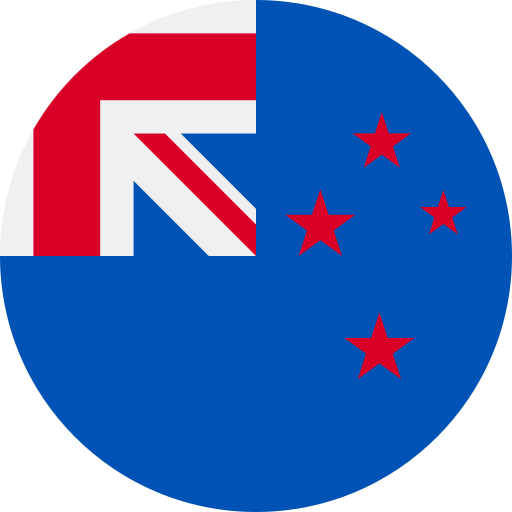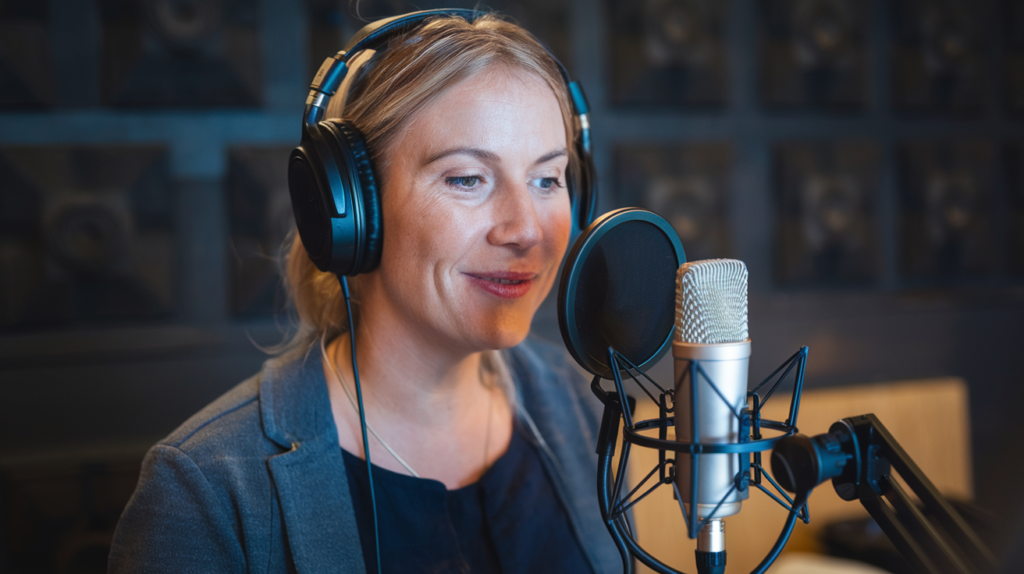Key Takeaways
- New Zealand English is characterized by unique vowel shifts and diphthongs, setting it apart from other English dialects.
- There is no single standard accent in New Zealand; regional accents vary significantly between areas like Auckland, Wellington, and Christchurch.
- Vowel sounds often shift in pronunciation; for example, “bed” can sound like “bid,” contributing to the accent’s distinctiveness.
- Consonant pronunciation also differs, with a softer “r” sound at the end of words and simplified consonant clusters enhancing local speech patterns.
- The Māori language has greatly influenced the New Zealand accent, integrating specific vowel sounds into everyday English usage.
- British and Australian accents have also shaped New Zealand English, creating a rich blend of linguistic influences that reflects local culture.
Ever wondered if there’s a standard New Zealand accent? You’re not alone. With its unique blend of influences, the Kiwi way of speaking can be both fascinating and confusing.
Overview of New Zealand English
New Zealand English showcases a unique blend of influences, making it distinctively different from other English dialects. It incorporates elements from Māori, British English, and Australian accents. You may notice vowel shifts that set it apart, such as the pronunciation of “e” in words like “bed,” which can sound closer to “bid.”
The accent often varies significantly between regions. For instance, speakers from Auckland might exhibit different speech patterns compared to those from Wellington or Christchurch. This regional variation adds richness to the language and reflects local culture.
While there isn’t a universally recognized standard New Zealand accent, certain features are widely acknowledged. These include the use of diphthongs—combinations of two vowel sounds in one syllable—which give words a distinctive flair. Recognizing these traits can enhance your understanding when working with voice talents who specialize in this accent.
If you’re considering hiring a voice artist familiar with New Zealand English, look for someone who captures its nuances effectively. A skilled voice actor will not only understand the accent but also convey emotions authentically through their performance. You’ll find that engaging a professional with expertise in this dialect can elevate your project significantly.
New Zealand English stands out due to its unique characteristics and regional variations. Familiarity with these aspects is beneficial when seeking top-tier voiceover talent for your needs.
Characteristics of New Zealand Accents
New Zealand accents possess unique traits that set them apart from other English dialects, shaped by various cultural influences. Understanding these characteristics can help when you seek voice talent for projects requiring authenticity.
Vowel Sounds
Vowel sounds in New Zealand English stand out due to specific shifts and diphthongs. The “e” in words like “bed” often sounds like “bid.” Similarly, the vowel sound in “fish” might resemble “fush.” These distinct pronunciations contribute to a melodic quality that’s both intriguing and charming. When hiring a voice artist familiar with these nuances, you’ll capture the essence of this accent, enhancing your project’s overall appeal.
Consonant Pronunciation
Consonants also play a vital role in defining New Zealand accents. For instance, the “r” at the end of words tends to be less pronounced compared to American or British accents. This phenomenon creates a softer sound that can blend seamlessly into speech patterns. Additionally, initial consonant clusters may simplify; for example, “st” might sound more like “s.” Recognizing these subtleties is essential when selecting a voice actor who can deliver an authentic performance reflective of local speech styles.
Regional Variations in New Zealand Accents
New Zealand’s accents showcase a fascinating array of regional variations, each with its own unique flair. Understanding these nuances can enhance your search for voice talent that resonates with local authenticity.
North Island Accents
Accents in the North Island, particularly those from Auckland and Wellington, differ significantly. In Auckland, you might notice a more pronounced “i” sound in words like “fish,” often resulting in the pronunciation “fush.” This shift adds to the melodic quality of the accent. Wellington speakers tend to exhibit clearer vowel sounds and a more fast-paced delivery. Recognizing these differences can be crucial when selecting a voice artist who captures the essence of North Island speech patterns effectively.
South Island Accents
South Island accents present their own distinct characteristics. Christchurch accents often feature less vowel reduction and maintain clearer enunciation compared to their North Island counterparts. The Southern drawl can give certain words an elongated sound, making them stand out. Otago speakers may incorporate a slightly different intonation pattern as well, adding variety within the region itself. When you’re looking for voice over talent from this area, understanding these subtleties ensures your chosen voice actor brings an authentic touch to your project.
Regional variations play a vital role in shaping how audiences perceive content delivered by voice artists. By recognizing specific traits associated with different areas in New Zealand, you can better connect with your target audience through relatable and authentic performances.
Influences on New Zealand Accent
The New Zealand accent reflects a rich tapestry of influences, shaping its unique sound. Understanding these influences can help you appreciate the nuances when selecting voice talent for your projects.
Māori Language Influence
Māori language plays a significant role in shaping the New Zealand accent. Many vowel sounds in Māori have seamlessly integrated into everyday English spoken in New Zealand. For instance, vowels may carry a distinct resonance that adds depth to speech patterns. This influence is particularly noticeable among voice artists who incorporate local culture and heritage into their performances, enhancing authenticity with every word.
British and Australian Influences
British settlers brought their accents to New Zealand, laying the groundwork for what would evolve into a distinct regional dialect. You’ll notice traces of British English, especially in vocabulary choices and certain pronunciations. However, proximity to Australia also left its mark; elements from Australian accents melded with those from Britain over time. This blend creates an interesting mix where some words may sound familiar yet distinctly different — think about how “mate” or “biscuit” might resonate differently here compared to other English-speaking countries.
Recognizing these influences aids in finding the right voiceover talent that resonates with your audience’s expectations while maintaining cultural authenticity. When seeking a voice artist for your project, consider how these accents can enhance character portrayal or narrative engagement through subtle variations and inflections rooted in local vernaculars.
Conclusion
The New Zealand accent is a fascinating blend of influences that creates a rich linguistic tapestry. While there’s no single standard accent, understanding the regional variations and unique characteristics can enhance your appreciation for this distinct way of speaking. Whether you’re seeking voice talent or simply curious about accents, recognizing these nuances is key to connecting with the local culture.
With its melodic quality and notable vowel shifts, the New Zealand accent stands out as an important aspect of identity. Embracing its diversity not only enriches your knowledge but also allows for deeper connections in various contexts. So dive into this intriguing subject and discover what makes the Kiwi accent truly unique.
Frequently Asked Questions
What are the main influences on the New Zealand accent?
The New Zealand accent is shaped primarily by Māori, British English, and Australian accents. This blend results in unique vowel shifts and distinct speech patterns that characterize New Zealand English.
Is there a standard version of the New Zealand accent?
There isn’t a universally recognized standard for the New Zealand accent. However, certain features like diphthongs are widely acknowledged, while regional variations exist between areas such as Auckland, Wellington, and Christchurch.
How do vowel sounds differ in New Zealand English?
Vowel sounds in New Zealand English exhibit notable shifts; for example, “bed” may sound like “bid,” and “fish” might be pronounced as “fush.” These shifts contribute to its melodic quality.
What role does regional variation play in New Zealand accents?
Regional variations significantly affect pronunciation across different parts of New Zealand. For instance, Auckland speakers often have a more pronounced “i” sound compared to those from Wellington or Christchurch.
Why is understanding the New Zealand accent important for voice talent selection?
Understanding these unique characteristics is crucial when selecting voice talent for projects requiring authenticity. It ensures that performances resonate with local audiences through relatable speech styles.
How has the Māori language influenced the New Zealand accent?
The Māori language has integrated many vowel sounds into everyday English spoken in New Zealand. This influence adds to the accent’s authenticity and richness, making it essential for accurate voice portrayals.
Can you describe consonant pronunciation in a typical Kiwi accent?
In a typical Kiwi accent, consonants may be less emphasized at word endings (especially “r”), and initial consonant clusters can often be simplified, contributing to its distinctive sound profile.







